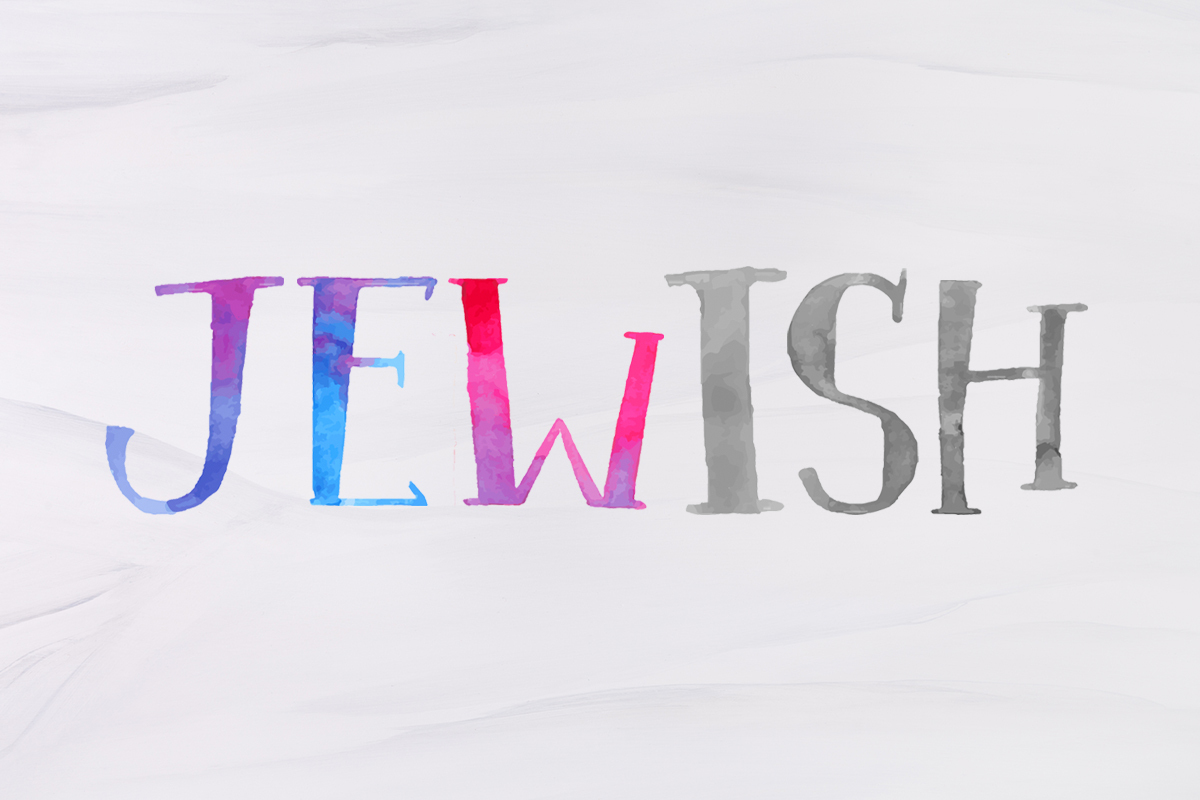Being Jewish is one of the main parts of my identity. So when people dance around calling me a Jew, a word filled with love and tradition in my mind, all I can ask them is: Why?
“I don’t feel right calling you that,” they say. “It just sounds like the punchline to a mean joke.”
People get creative when coming up with alternatives — nervously adding “-ish person” to the end of “Jew” at the last second, calling me “a person of the Jewish faith” or other awkward phrases to avoid saying the dreaded J-word.
I know these people mean well, and they’re afraid they might accidentally say something offensive, but not saying the word “Jew” gives power to the misconception that it’s a slur.
I can understand why they think that. It’s true that bigots and antisemites often spit out the word in a condescending, disgusted way that makes it sound like an insult. And let’s not forget the Jews who were forced to wear the yellow Star of David badges branded with the word “Jude” during the Holocaust so everyone could identify them. In these instances, Jew was most definitely used as a slur.
But when well-meaning people use it respectfully, it’s not offensive in the slightest. In fact, it feels more awkward to dance around the word than it does to just say it. Most Jews refer to each other as Jews, and others I’ve talked to with similar experiences said that the avoidance of the word makes them uncomfortable.
Yet, gentiles aren’t the only ones who worry that Jew is an outdated term better left in the past. Even some Jews have come to believe that the moniker is a derogatory word because of the contempt antisemites have attached to it. It’s upsetting to know that others have ruined a special and beautiful word for those whom it describes.
Growing up, my friends and I referred to ourselves lovingly as the “Jew Crew.” I would hate for these types of phrases to be eradicated from everyday vernacular, all because gentiles think it is something to be ashamed of.
Shockingly, even some style guides have been published suggesting it is better to use “Jewish people” over “Jews” in writing. Again, I ask: according to whom? It makes me wonder if any Jews were consulted at all in this decision. By setting rules that state “Jew” is not a preferred term, it sets the narrative that the noun is an insult, and it perpetuates the negative connotation that Jews are trying to break down.
It doesn’t help that the majority of Jewish representation in TV shows and movies plays on negative stereotypes, even in today’s media landscape. Let’s take the Saperstein family in “Parks and Recreation”: the rich doctor father who scams people, and the greedy, annoying daughter whose catchphrase is “money please!”
Or the jokes in “New Girl,” which often center on how the character Schmidt is attractive despite being a Jew. Apparently the TV writers thought it would be funny to throw in the line, “You’re really sexy for a Jew.”
Jabs like these are overplayed in various TV shows and movies. And while the media definitely plays a role in perpetuating the misconception that “Jew” is a slur, that doesn’t mean we should give in and stop using it altogether. If anything, it means that we should use it even more in everyday conversation to offset the stereotype that it’s an insult.
If you’re still worried about offending Jews by using the word in the wrong context, just remember that it’s OK to use it as a noun, but not as a verb.
For example, you may have heard the crude phrase “Jew him down,” which refers to bargaining down the price of something. This is clearly not an acceptable way to use the word, and other instances in which “Jew” is used as a verb often carry the same disrespectful tone.
It’s also important to ask Jews if they prefer to be called a Jewish person or something else, and know that their preference does not speak for the group as a whole. It’s a personal choice that can feel more sensitive to some than others.
I am a Jew, and I want others to know that referring to me as such does not come off as disrespectful. It’s time to reclaim our identity as Jews and not let anyone diminish who we are by changing what we are called.



